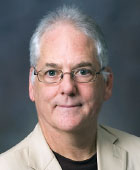Marking Time and Passing the Baton
Abstract
The Climate Psychiatry Alliance (CPA) was founded in late 2016. CPA’s goals have been to research and describe the key issues relating to the mental health impacts and responses to the climate emergency. One of the most important CPA activities has been to educate our health professional colleagues, the general public, and key policy leaders about these issues. During that time, CPA membership has grown dramatically, and its influence has led to notable accomplishments:
Numerous scientific presentations at APA’s Annual Meetings and Mental Health Services Conferences, as well as other professional conferences.
Development of clinical and policy recommendations.
Major contributions to climate and mental health research initiatives.
Curriculum development for various health professional disciplines.
Scholarly publications, major media interviews, and social media impact.
Significant participation in climate and health-focused organizations, elevating the visibility of the mental health impacts within the larger realm of health and public health.
A dramatic increase in the number of mental health professionals incorporating some climate-related activities into their professional and personal lives.
In the same period, APA and other organizations have conducted public surveys that underscore ever-growing fears associated with the climate crisis. Consequently, APA responsibly and swiftly created both a caucus and a committee on climate change and mental health.
Psychiatric News initiated this column on climate change and mental health four years ago. I have been privileged to be the coordinator and editor of these columns. The pieces that we have published cover a wide range of topics demonstrating the breadth and importance of these issues. Since I am fully retired from my academic roles, I have passed the editorial duties on to an eager and brilliant colleague, Mikel Matto, M.D. This is the last column I will contribute. I thank Psychiatric News for its support in our launching and sustaining this important source of information for our colleagues.
Given the deeply emotional and distressing aspects of the climate crisis and its impact on all of us, I must conclude my contributions on a hopeful note. I offer an anthem for the age of climate change, actually a revision of an old anti-war song, “Last Night I Had the Strangest Dream” written by Ed McCurdy and recorded by Pete Seeger in 1956:
Last Night I Had the Strongest Dream
Last night I had the strongest dream,
A dream that seemed very sound.
I dreamed the world had all agreed
That carbon should stay in the ground.
I dreamed there was a great big room
And the room was filled with men and women
And the papers they were signing said
They’d never harm earth again and they meant it.
When the papers were all signed
And a billion e-copies made,
They all joined hands and bowed their heads
And grateful prayers were prayed.
The people in the streets below
Were filled with hope and mirth.
They knew the future would be hard,
But they pledged to save the earth.
The children chose to lead the world
From darkness, driven by truth.
Their angry fears and hopes for change
Propelled the power of youth.
They joined with people of all hues,
Excluded, Native, or queer,
To elevate their rights to live
Free from poverty, illness, or fear.
They worked to clean the air and soil,
The oceans, rivers, and streams,
Used wind and sun to power their lives,
And realized all of their dreams.
They opened arms and borders to
The folks who fled heat and drought.
These emigres then proved their worth
Beyond all hate, fear, or doubt.
Last night I had the strongest dream,
A dream that seemed very sound.
I dreamed the world had all agreed
That carbon must stay in the ground. ■




